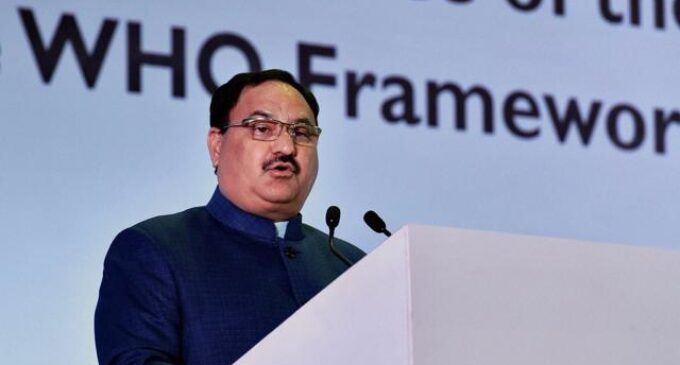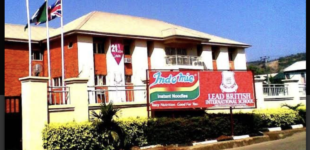COP7 vistas and the tobacco epidemic

BY AUSTIN OFILI
The just-concluded seventh session of the conference of Parties to the World Health Organisation Framework Convention on Tobacco Control (WHO-FCTC) remains a watershed in efforts to hold tobacco companies liable for the harms of their products.
Among other broad action-plans, representatives from about 180 countries who participated in the treaty negotiations which ended Nov. 12 in New Delhi adopted a declaration vowing to prohibit or regulate the sale of e-cigarettes. They also agreed to promote alternative livelihoods for tobacco farmers who feel threatened as the FCTC implementation gains momentum. The Parties advanced tools to recover healthcare costs, facilitate access to justice for victims of tobacco-related disease, and safeguard public health policymaking from the industry at the national level.
These epoch-making decisions were premised on rising smoking-related deaths worldwide with projections indicating that about 80 percent of tobacco-induced deaths will occur in developing countries like Nigeria by 2030. The WHO insists that without strong control measures, tobacco will kill about one billion people in the 21st century.
It was with these in mind that the over 1,500 delegates from across the globe that attended the treaty talks expressed grave concern over tobacco industry determination to infiltrate the talks in order to influence the final outcomes.
Over the years, infiltration of the talks had come by way of tobacco industry sponsoring delegations to advance the watering down of proven measures to implement the FCTC. The tobacco industry had also been accused of sponsoring lobbyists to the talks, exploiting loopholes in the public badge policy and more recently, the media.
Though Parties at the Delhi talks refused the distractions of industry lobbyists and advanced the cause of public health, like never before, the alarm bells sounded about industry clients trying to stymie efforts to implement anti-smoking laws.
It is no longer news that the Nigerian delegation got the ash tray from anti-tobacco activists who were miffed by statements credited to some of the delegates who surprisingly advanced lines similar to the tobacco industry internal documents. While a member of the Nigerian delegation shocked the committee of nations at the talks by arguing against the term tobacco epidemic, another went further down the line with the assertion that there was no scientific backing for the medically-proven addictiveness of tobacco products.
It took the intervention of the leader of the Nigerian delegation, Professor Ukoli Onawefe and a few other vocal members of the team to steer the erring delegates back to the path of honour.
Some other delegations also had their share of very disturbing manoeuvrings. While the Zimbabwean and Malian delegations became mouthpiece of the tobacco companies, the official Ugandan delegation was taken aback when another team comprising lawmakers and ministry of trade officials arrived the talks claiming they had the mandate of their government to be part of discussions.
It took the wisdom of the conference secretariat to block that group which also had a lawyer suspected to be working for the tobacco industry from participating in the treaty talks.
These happenings made the demands to do something about the industry the more louder. The demands are however in sync with Article 5.3 of the FCTC which emphasizes the tobacco industry’s fundamental conflict with public health, for which reason Parties are mandated to refuse to treat tobacco companies as “stakeholders” in public health policy; and reject partnering with tobacco corporations for health or other purposes; or accept their so-called corporate social responsibility schemes.
Article 5.3 guidelines are the backbone of the treaty- aimed at preventing tobacco industry inference in bans on advertising, promotion and sponsorship, smoke free public places and graphic health warning labels among others.
The dexterity with which the tobacco industry tried to thwart the talks at the international level should however be an eye-opener to Nigeria’s Ministry of Health back home as it grapples with the task of coming up with effective regulations for implementation of Nigeria’s National Tobacco Control Act.
A report credited to the Initiative for Public Policy Analysis (IPPA) poking the composition of the National Tobacco Control Committee (NATOCC) should not be taken lightly as it may in fact be a sneak peek into the possibility of the tobacco industry throwing a spanner in the works of any legislation to regulate its activities.
This happened in Kenya where BAT launched a lawsuit against the Kenya Ministry of Health claiming it violated due process procedures under the Constitution by not consulting with the tobacco industry when fashioning regulations for implementation of its tobacco law. In Uganda BAT was also mentioned in a bribery scandal aired on BBC after a former BAT staff turned whistle-blower revealed the company bribed government officials to thwart tobacco control laws.
It is because of the examples mentioned that public health experts see the advancements on legal liability as a positive step that could set a model for industries to be accountable for environmental damage or public health harms they could cause. Governments for once agreed to expand the expertise and case studies available to file legal and civil suits against Tobacco companies. The decision, which advances Article 19 of the global tobacco treaty, opens the door for governments to sue the industry and recoup millions for the health care costs associated with tobacco use. To date, a handful of countries have utilized the principles contained in Article 19. For instance, Canadian smokers recently won a $15 billion payout from the industry, after an historic 17-year legal suit.
The Nigerian government must see this as an opening to confront the tobacco companies that have addicted Nigerian youths and unleashed a looming tobacco epidemic on the citizenry. This is the time to act!
Ofili is a public health expert based in Asaba
Views expressed by contributors are strictly personal and not of TheCable.















There are no comments at the moment, do you want to add one?
Write a comment